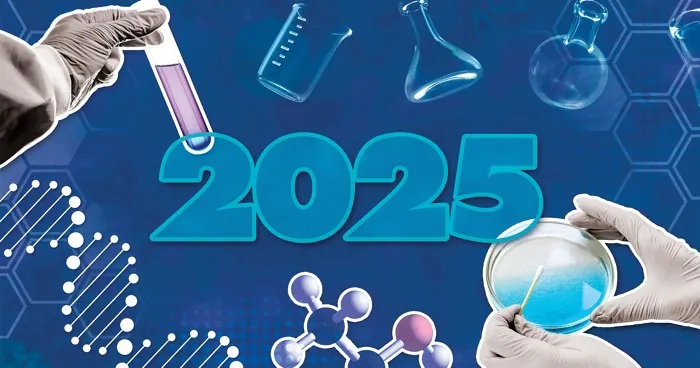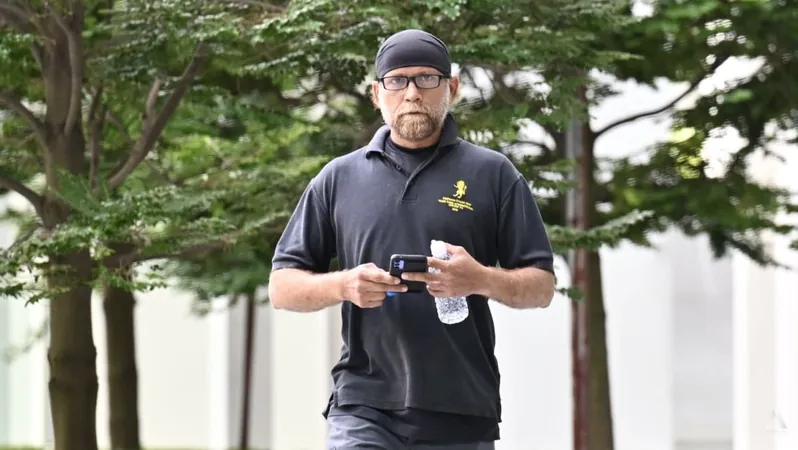
The Game-Changing Advances in Chemistry to Watch for in 2025!
2024-12-17
Author: Sarah
Chiral Chemistry Takes Center Stage
Maxx Arguilla, an inorganic chemist from the University of California, Irvine, forecasts significant advancements in the field of chiral materials. These breakthroughs are expected to refine our comprehension of chiral motifs and their inscription onto inorganic crystals. This innovative research could unlock deeper insights into chiral-induced spin selectivity, leading to a more comprehensive materials toolbox. Scientists anticipate that these developments will pioneer applications in quantum devices, spintronics, chiroptics, chemical separations, and electrocatalysis—essential for sustainability at both bulk and atomic scales.
Batteries Beyond Lithium: A New Era of Energy Storage
Rachel Carter, a battery specialist at the US Naval Research Laboratory, emphasizes a pivotal shift in battery research. With the increasing demand for reliable energy storage solutions, researchers will explore a diverse range of battery types, moving beyond lithium systems. The exciting new trend of 'anion redox' could supercharge sodium-ion batteries—utilizing sodium’s greater abundance and size—while also working on making traditional alkaline batteries more rechargeable. Innovations in liquid electrolytes are expected to play a vital role in these developments.
Revolutionizing Molecular Dynamics
Computational biophysicist Abigail Dommer from the University of Groningen highlights the major shifts in computational power that have finally enabled in-depth simulations of cellular-scale systems using molecular dynamics (MD). This 'computational microscope' will facilitate a deeper understanding of complex biophysical processes, including insights into the interactions that underpin life itself. In 2025, expect to see groundbreaking simulations of entire organelles and even whole cells, potentially unveiling the intricate mechanisms behind gene expression.
Combatting Plastic Pollution
Outi Keinänen, a radiochemist from the University of Alabama at Birmingham, warns of the growing crisis related to micro- and nanoplastic pollution. In 2025, enhanced detection techniques will bring to light the rampant contamination from plastics, igniting crucial discussions on ecological health. Ongoing research is focused on developing microorganisms that can degrade these pollutants and on biodegradable alternatives. However, before these new materials can be broadly adopted, there's an urgent need for more thorough investigations into their ecological and health impacts. Initiatives aimed at regulating plastic pollution are also anticipated.
A Sustainable Future Through Innovative Chemistry
Jesús Velázquez, a materials chemist from the University of California, Davis, discusses the imperative shift towards sustainable chemical production. The focus will be on designing next-generation electrocatalysts for efficient CO2 conversion to essential chemicals using renewable energy sources. This is more than just a response to climate change—it's creating new economic opportunities by transforming waste into valuable resources, aligning manufacturing processes with society’s pressing demand for sustainability.
Conclusion
The chemistry landscape in 2025 is poised for transformational developments that not only promise to enhance our understanding of the universe but also tackle some of the most pressing challenges facing humanity today. As researchers delve into these groundbreaking realms, we may witness profound changes that redefine our technological capabilities, environmental strategies, and overall quality of life. Stay tuned, as the next few years could be nothing short of extraordinary!




 Brasil (PT)
Brasil (PT)
 Canada (EN)
Canada (EN)
 Chile (ES)
Chile (ES)
 España (ES)
España (ES)
 France (FR)
France (FR)
 Hong Kong (EN)
Hong Kong (EN)
 Italia (IT)
Italia (IT)
 日本 (JA)
日本 (JA)
 Magyarország (HU)
Magyarország (HU)
 Norge (NO)
Norge (NO)
 Polska (PL)
Polska (PL)
 Schweiz (DE)
Schweiz (DE)
 Singapore (EN)
Singapore (EN)
 Sverige (SV)
Sverige (SV)
 Suomi (FI)
Suomi (FI)
 Türkiye (TR)
Türkiye (TR)